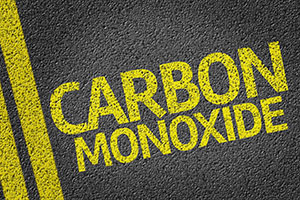
Posting Date: December 23, 2016
Posted by: Steve Ferguson, Ocala and Tampa Office & Shawn Workman, Fort Myers and Sarasota Office
If you’re like most people, you probably have at least one appliance inside your home – a gas furnace or non-electric water heater, for example – that’s powered by combustion.
Any appliance that relies on burning fuel produces some amount of carbon monoxide, or “CO.” In very small amounts, CO is relatively harmless. But as it builds, CO can become a real threat to your health and safety.
Here are six questions and answers about carbon monoxide to help keep your family safe at home.
1. What is carbon monoxide?
Carbon monoxide (CO) is an odorless gas produced by burning fuel, including heating oil, gasoline, coal, wood, charcoal, kerosene, propane, or natural gas. In high amounts, carbon monoxide can cause CO poisoning, which can lead to illness, unconsciousness, or, in extreme cases, death.
2. What causes CO buildup?
CO buildup usually occurs for two reasons: poor ventilation or damaged / improperly maintained heating equipment.
3. What are the symptoms of CO poisoning?
Symptoms of CO poisoning vary depend on the amount of exposure to the gas.
- In mild cases, symptoms include nausea, fatigue, headaches and dizziness
- In moderate cases, symptoms include severe headaches, drowsiness, and disorientation
- In extreme cases, symptoms include unconsciousness, convulsions, and, in rare cases, death
4. What should I do if I experience CO poisoning symptoms?
- Get fresh air immediately. Open windows and leave the house
- Call 911
- Report your symptoms to your doctor
- Service faulty fuel-burning appliances before using them again
5. What should you do if the CO alarm sounds?
- Leave the house
- Call 911
- DO NOT reenter the premises until getting the OK from the fire department
- Service faulty fuel-burning appliances before using them again
6. How can I avoid CO problems in my home?
- Learn the signs and symptoms of CO poisoning, and teach your family what to do if they experience them
- Maintain all fuel-burning appliances every year
- Install CO detectors in your home
- Repair any faulty appliances immediately
- Consider an upgrade on older fuel-burning equipment
Stay safe this holiday season! Contact Broward today to learn more about great equipment upgrades and maintenance services for all your home comfort systems.
